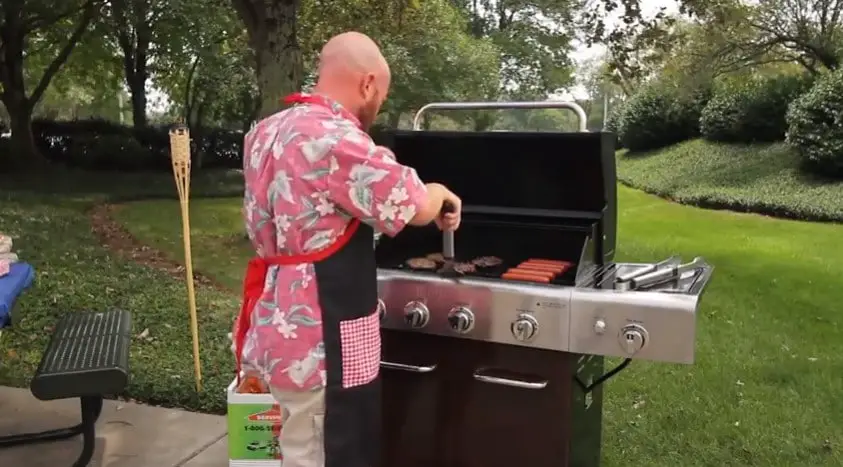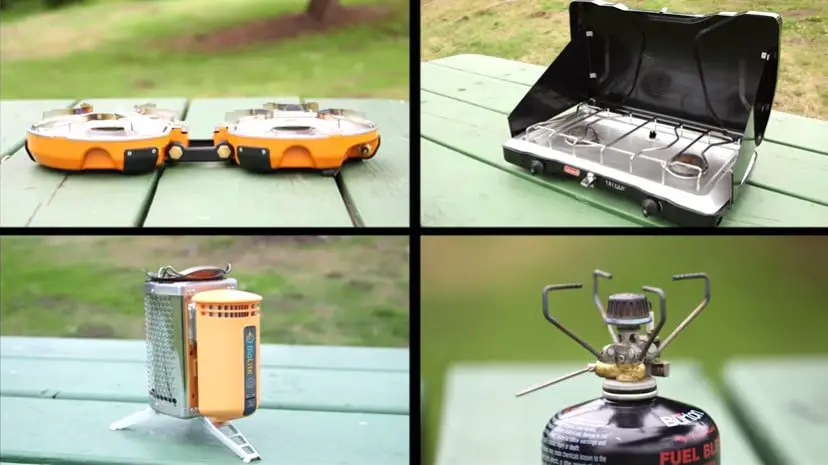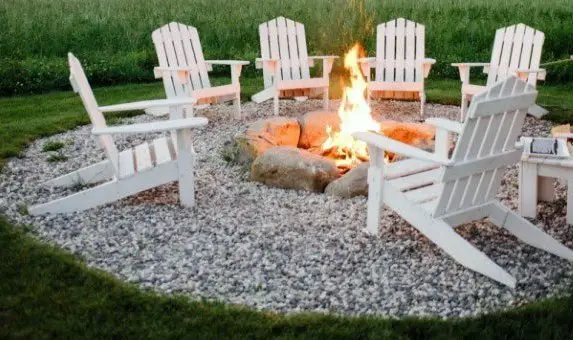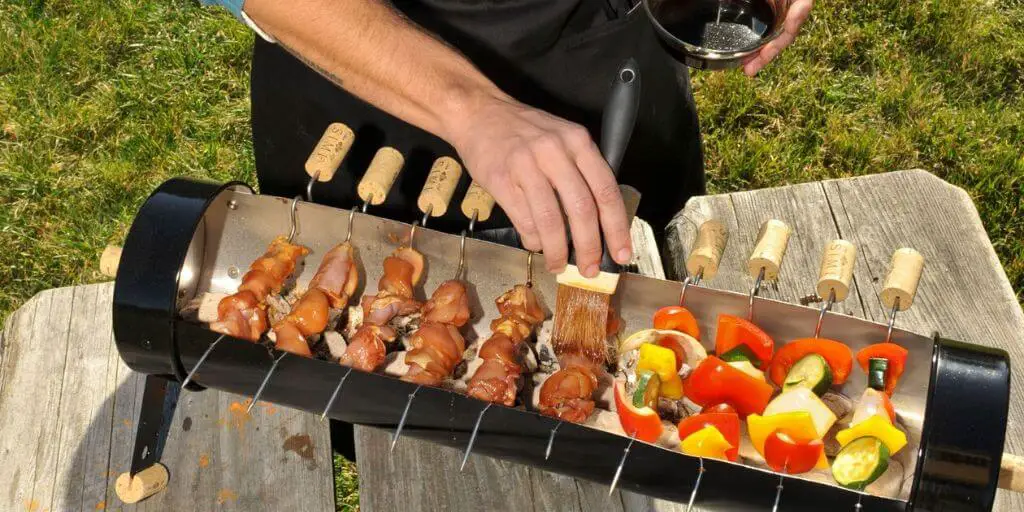7 Outdoor Cooking Safety Tips Every Person Should Know
Last Updated on February 3, 2020 by Duncan
Whenever the sun is out, many families cook outdoors. The summer and autumn are usually shimmering with sunshine.
Fine weather transforms these seasons into opportunities for taking kitchen activities outside. Barbecues, outdoor parties, and festivals provide motivation.
Despite the fun associated with having an outdoor kitchen, outdoor cooking has risks. Accidents can happen, or someone may fall sick, hence the need for preparedness.
For instance, if you are using a charcoal grill, you must never add flammable liquids to it. Also, you should avoid operating a charcoal burner under windy conditions.
Most outdoor cooking involves the use of grills. To keep up with their peers, many people hold barbecue parties at their homes. Owing to inexperience, they grapple with outdoor cooking equipment.
As they do so, they amplify the risk of accidents. What began as a fun time ends up causing injury, and in some cases, damage to property.
Moreover, the chances of food contamination and the illness of a loved one are high. The good news is that even with all these risks, you can eradicate or cut accidents. We have prepared seven outdoor cooking safety tips that you will find most beneficial.
1. Transform Food Preparation
Grilled food always tastes good. Besides, the aroma coming from the grill fires up everyone’s appetite. If you plan to cook food outdoors, safety starts at the grocery store.
Choose frozen meats and store them in the freezer as soon as you get home. Also, pack the beef, pork, or chicken in plastic bags.
Packaging prevents juices from dripping and contaminating other foods. Keep it under refrigeration until you are ready to grill. Before you start, ensure you thaw the meat.
While grilling, see that you cook it until it is soft. Poultry needs 180 degrees of heat, while burgers need 160 degrees as does pork.
2. Set the Grill and Other Sources of Heat in a Proper Location

Resist the temptation to fire up your cooker in a covered porch, garage, or tent. Apart from increasing the chances of a fire hazard, you risk carbon monoxide poisoning.
You must place the grill 10 feet from the house. Never use a burner indoors, and this also applies to fire pits.
In case you are using charcoal, pour water on the coals when you finish cooking. Wait until the charcoal has cooled before moving the equipment.
For gas grills, always check for leaks. By opening the lid when lighting, you prevent flash-offs that could burn your face.
3. Do Not Consume Alcohol or Drugs
Alcohol and other drugs inhibit your thinking and reflex action during cooking. You become not only clumsy but also careless.
Wisdom dictates that you keep it aside until later when your food is ready. Spirits contain a higher concentration of alcohol than beer.
They can start a fire when spilled. Being high on other substances such as cannabis is a recipe for disaster.
The idea to indulge may seem like a cool thing to do until accidents occur. Besides, poor judgment could result in semi-cooked food leading to other health issues.
4. Plan Your Day in Advance
Delegate cooking tasks to other family members. Do not do all the work alone. You will soon develop fatigue and open the way for errors.
If you are hosting, request some help from friends. You could notify them a few days before the event instead of ambushing them with work.
Plan everything to the tiniest detail. As you light the grill, one person could be marinating meat. Another could arrange seats in the yard, while someone else keeps the kids busy and so on.
5. Cooking Utensils

Outdoor cooking is not always within the confines of your home. While out camping, you will prepare food outside the tent. Either way, you need cooking utensils.
Up until now, we have mentioned the cooking grill over and over. Yet, that is not the only paraphernalia. You need bowls, serving spoons, scissors, forks, and bottle openers.
These are but a few examples. Camping cookware has its appliances too. Examples of the best cookware for camping include things like tongs, knives, soup spoons, cutting boards, kettles, and mugs.
For camping purposes, utensil sets have a carrying case. When buying stoves and grills, pick those with enhanced safety features
6. Zone-out the Cooking Area
Kids are always eager to find out what the adults are doing. Their curious minds make them want to linger around the cooking area.
As they do so, their carefree nature also leads to carelessness. Choose a space for children to play and have an adult watch over them.
Refine your hygiene standards for their sake. Also, cook food to the highest possible quality. Otherwise, you could be staring at food poisoning and other complications owing to children’s sensitive stomachs.
Also, have some creative activities to keep the kids busy. Meanwhile, be on standby with a first aid kit plus an emergency service number.
7. Map-out a Waste Disposal Section
After everyone has had their fill, there will be leftovers. Empty plates, cups, or even bottles scattered all over the place are an eyesore.
Identify a site for disposal of trash and put a bin there for that purpose. Emphasize and keep reminding everyone not to throw waste around.
More so, ensure that you dispose of charcoal and any broken glass. For hot coal, douse it in water and let it cool off before disposal. If you were using gas cookers, turn their valves off. After the party ends, collect all trash and restore the area to the way it was.
Conclusion
Outdoor cooking, if done with discernment, is always a fun-filled activity. Unfortunately, accidents are never too far. Thanks to the safety tips listed above, everyone will enjoy it while under secure surroundings.
Proper food preparation must always be a priority. Also, setting the fireplace at a safe distance from the house helps prevent fire outbreaks.
Drugs and alcohol consumption while cooking does not mix well. Planning ensures that you do not break your back by doing everything.
Always have someone to help you. Utensils are your arsenal, and you must ensure you have all you need.
Keep kids at bay while also having someone you trust watching them. Manage the waste generated.By following these tips, outdoor cooking will always be a smooth affair.


